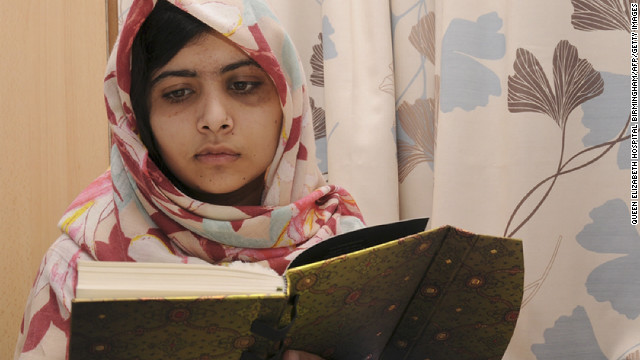
(CNN) -- The Pakistani teen blogger simply sought to get an education. But she became a symbol of defiance against militants, empowering young women worldwide.
The story of Malala Yousufzai, 15, an outspoken critic of the Taliban, is full of contradictions.
Tragic, yet triumphant.
Unafraid, yet battling one of the world's most feared terror groups.
An old soul, yet just a kid.
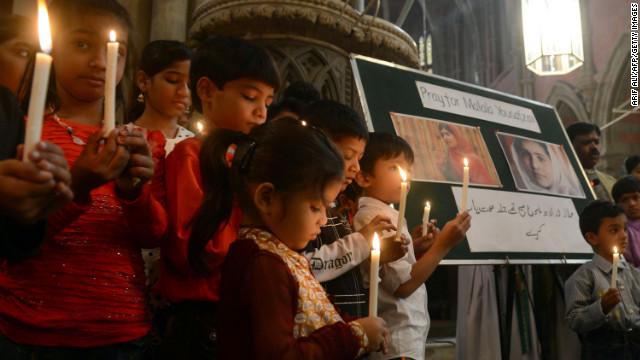
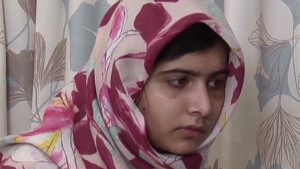
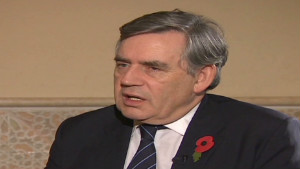
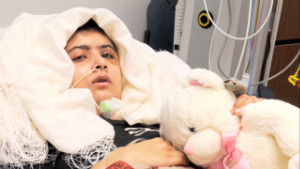
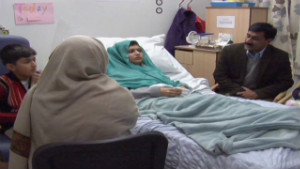
For years, the young activist has been at odds with the Taliban over her education crusade. She has openly defied the group's teachings on educating girls and encouraged her peers to do the same.
In an attempt to silence her, militants stormed her school van in October, barked out her name and put a bullet in her head.
But the attack only amplified her voice and rallied a world of supporters to her side.
CNN.com readers voted her as the second-most intriguing person of 2012, days after she was short-listed for Time's Person of the Year. U.S. President Barack Obama came first in both lists.
Constant threats
Malala's global recognition has come with a price.
While most girls her age relish their teen years, she is undergoing grueling treatment in Britain after the shooting.
She lives under constant threats for going to school in the conservative Swat Valley region in northwest Pakistan, where women are repressed under the militants' strict interpretation of Islam.
Despite the dangers, Malala blogged ferociously about her dream of learning without fear. She used television interviews, documentaries and took to the streets to challenge the iron hand on women.
She accused the Taliban of thriving on ignorance.
"Where in the Quran does it say that girls should not be educated?" she asked last year. "I have the right to play. I have the right to sing. I have the right to go to market. I have the right to speak up."
Her role as an activist led to the attack on the van carrying her and other girls home from school, two of whom were also hurt, but not as severely.
The Taliban claimed responsibility for the attack.
"We do not tolerate people like Malala speaking against us," a Taliban spokesman later said.
Slow recovery
More than two months after the assassination attempt, Malala is still undergoing treatment. She went from an intensive care unit in Pakistan to a hospital in the British city of Birmingham.
Before she left home, she was unconscious. She now walks, writes and reads.
After she regains her strength, she will undergo more surgeries.
It is astounding that she suffered no major brain or nerve damage from the shooting, her doctors say.
Her story of defiance has sparked marches worldwide demanding girls' education.
It has inspired girls in far-flung areas, who relate to her because she is a child herself.
World leaders have hailed the "Malala effect" that made young girls even more determined to get an education.
On November 10, the United Nations marked Malala Day to honor her advocacy work.
And her fight for education is not over yet.
In a message this month thanking supporters, she told them not to make this about her.
"People have actually supported a cause, not an individual," she said. "Let's work together to educate girls around the world."
In her continued commitment to education, she called on Pakistani officials Friday to reverse a decision to name a school after her. She made the request over safety concerns for the students after the Taliban attacked the school.
Before she intervened, students protested and tore down her pictures over the decision to name the school after her, saying the move put them at risk.
'A new heroine'
Pakistani girls' education has long been hampered by widespread poverty and threats by hardline Islamist groups.
The United Nations estimates 32 million girls worldwide don't have access to an education. Roughly 10% of those live in Pakistan.
"Pakistan has a new heroine and a new cause -- a girl's right to education," former British Prime Minister Gordon Brown said last month. "Malala's courage has awoken Pakistan's silent majority who are no longer prepared to tolerate the threats and intimidations of the Pakistan Taliban."
Since Malala was 11, she has used her blog to encourage girls to go to school despite Taliban threats. Her focus led her homeland to award her its first National Peace Prize last year.
In January 2009, militants took over her once-tranquil city in Swat Valley and ordered schools to stop educating girls. She blogged about the Taliban's efforts to scare girls away from learning institutions.
They raided homes to confiscate books, she said. Malala hid hers under her bed.
"I was scared of being beheaded by the Taliban because of my passion for education," she said last year.
Her fears almost came to fruition.
After the shooting, militants vowed that if she survived, they would go after her again. They also threatened to kill journalists covering her story.
"This filthy, godless media has taken huge advantage of this situation, and journalists have started passing judgment on us," the Taliban said in a statement.
Malala is uncowed.
When she takes a break from treatment, a white teddy bear with a pink bow sits on her lap.
In her hands, there is always an open book.
http://edition.cnn.com/2012/12/24/us/malala-cnn-most-intriguing-2012/index.html?hpt=ias_t4
No comments:
Post a Comment